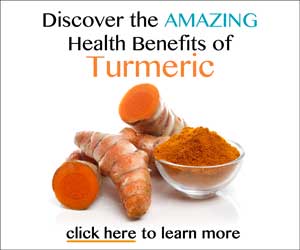Is Guggul Bad for Your Heart?

Involving 103 otherwise healthy adults with elevated cholesterol levels, the results of the study that is most often cited to discourage using guggul to lower cholesterol was published in JAMA in 2003—two years after it was completed. Held at the University of Pennsylvania, it is the only published clinical trial conducted in the United States (as of March, 2011) to assess the cholesterol-lowering effects of guggul, and was funded primarily by tax dollars (over $760,000) through the National Center for Complementary and Alternative Medicine. As published in JAMA, it warned that taking guggulipid—a supplement that generated “$1.3 million in sales” in 2002 alone, according to the study’s authors—could actually raise bad (LDL) cholesterol levels.27
The Reported Negative Effects of Guggul
Divided into three groups, the participants were randomly assigned to either take 1000 or 2000 mg of standardized guggul extract three times a day for eight weeks or to a placebo control group. As a double-blinded study, neither the participants nor the researchers knew what each participant took during the length of the study. Results showed that while the LDL in the placebo group decreased by 5%, the 1000 and 2000 mg guggul-treated groups experienced a four and five percent increase in LDL cholesterol levels respectively — which the researchers called a significant “net positive change” of 8-9%. Interestingly, this significant percentage is reached by adding the small, insignificant increase in LDL to the decrease in the placebo group.27
A small number of the test groups also developed a skin rash (which did not happen in any of the control group). But this seems to be a minor adverse effect from a substance which this study’s unreported or de-emphasized results suggest may offer significant preventive benefits against serious cardiovascular risks, including the significant decrease in the inflammatory protein hs-CRP. 27
Positive Effects of Guggul Found in the University of Pennsylvania Study
There are positive heart benefits of guggul, including some reported in the JAMA article but not emphasized. For example, those that took guggul (both dosage levels) did experience a 14-15% drop in triglyceride levels, compared to the 10% increase in triglycerides in the placebo group. Additionally, in the 85 participants who completed the study, the high-dosage guggul-treated group showed almost 30% reductions in hs-CRP levels while the placebo group had a 25% increase in this heart disease risk factor. The positive effects of guggul merit only a passing mention in the article as “warranting further investigation,” but the primary conclusion reached is that using guggul to lower cholesterol is not supported and indeed unsafe for adults consuming a Western diet.27
“Dramatic” Unreported Beneficial Effect of Guggul Found in Study
The JAMA article never reports the data that suggests guggul may exert metabolic effects that could counteract the risks of metabolic syndrome—an ever-increasing healthcare concern characterized by a the combination of heart disease and diabetic symptoms.27
The lead study author, Dr. Phillippe O. Szapary, does report these findings elsewhere. At a symposium sponsored by the Universities of Exeter and Plymouth, he notes that analysis of the 85 participants who completed the study, those participants who took the guggul had a modest decrease in fasting glucose and insulin.4 Although this was not seen as statistically significant, it should be noted that only 75% of the participants assigned to the high-dosage guggul group actually completed the study, compared to 83% of those taking placebo and 88% on the smaller dosage guggul, which could have impacted this assessment.27
Even more important, according to the lead researcher, is the reduction in the inflammatory protein hs-CRP uncovered in the study. While the JAMA article and the ensuing publicity focused on the small increase in LDL, the almost 30% reduction in hs-CRP was unfortunately marginalized as “small but not statistically significant.”27 Dr Szapary, however, called the finding “dramatic” at the symposium in England—especially compared to the 25% increase in the hs-CRP reported for the study’s placebo group.4
Levels of a certain protein (hs-CRP) produced by liver cells are indicative of acute and inflammatory conditions in the body, including atherosclerosis. A growing body of research indicates that hs-CRP levels are associated with greater cardiovascular risk levels than either cholesterol or blood pressure. Even as early as 2003, when the JAMA article was printed, both the Centers for Disease Control and Prevention (CDC) and the American Heart Association (AHA) recognized the importance of hs-CRP—which has only increased in the past few years.30



